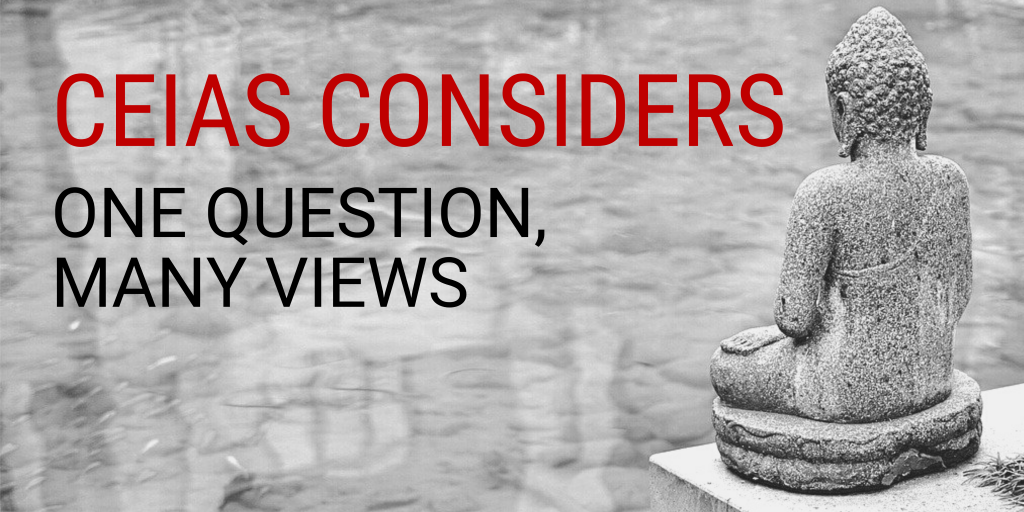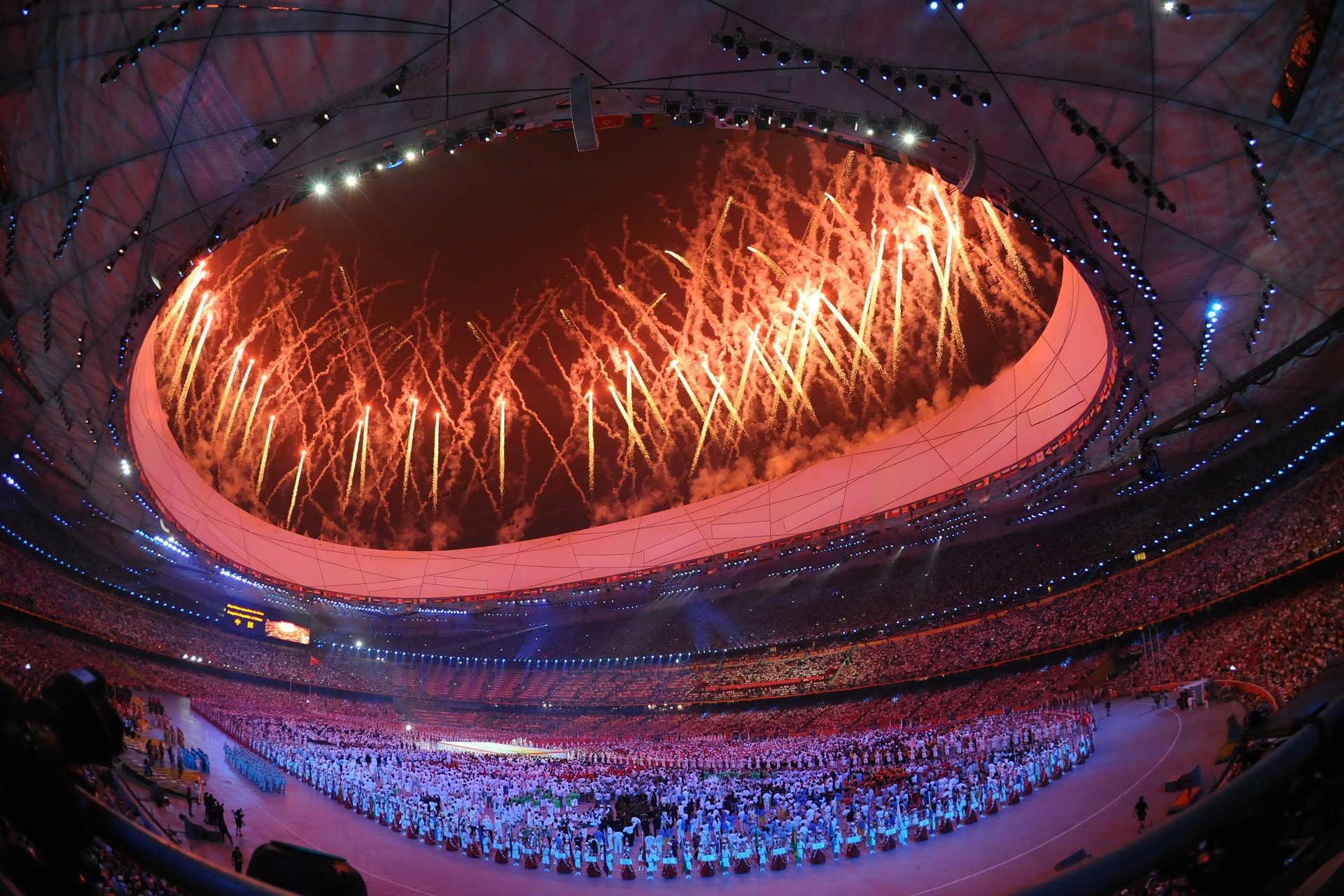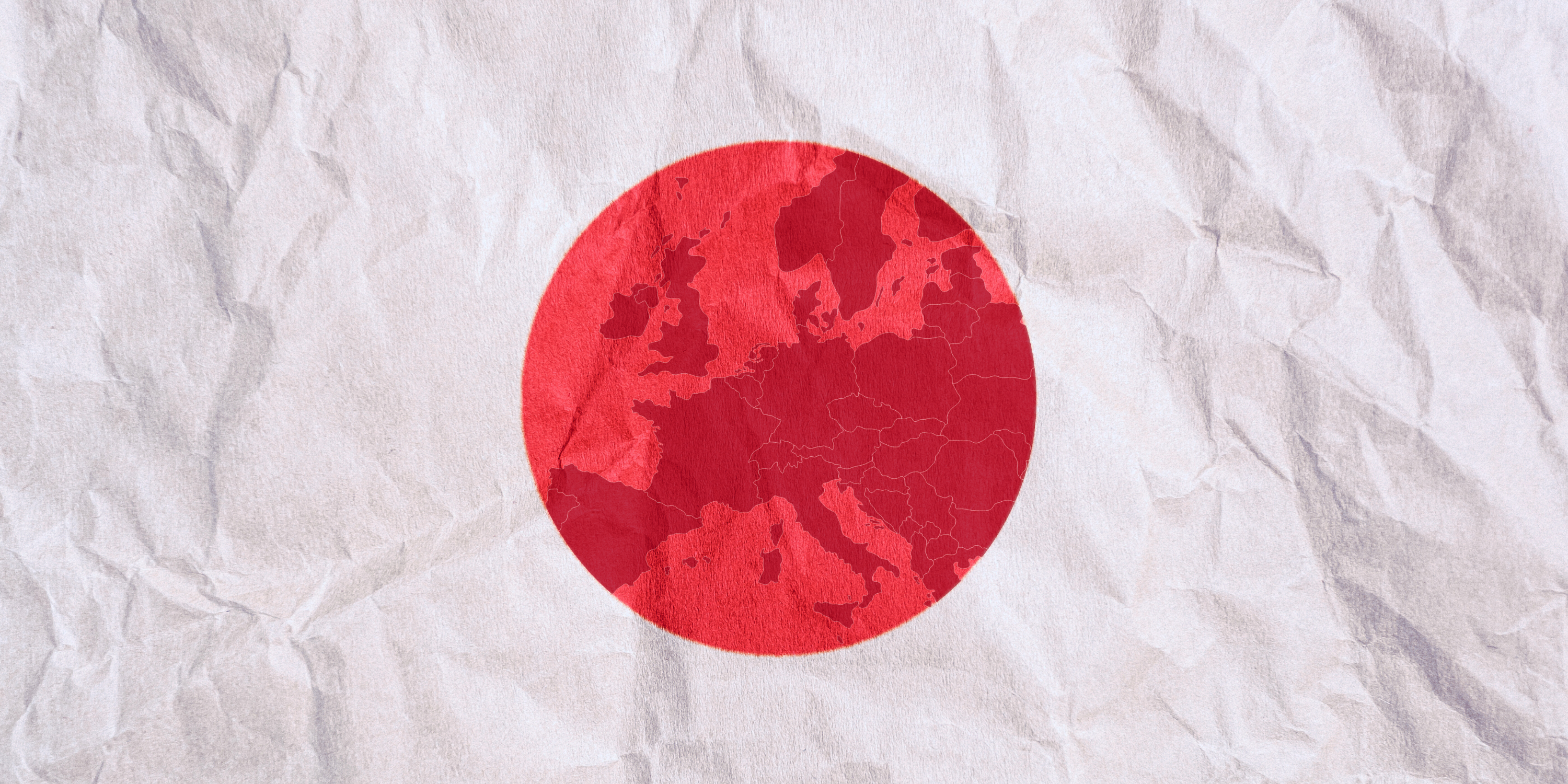
Loved at home; increasingly unpopular abroad?
“Together for a shared future” is China’s wishful motto for the Winter Olympics, which formally began on February 4. But with many Western countries diplomatically boycotting the games, no spectators, and two possible conflicts on the horizon – the Russian invasion of Ukraine and the Chinese invasion of Taiwan – the Winter Olympics arrive at a troubling time for international relations. “CEIAS Considers” asked regional experts how the Winter Olympic games will impact China’s image at home and abroad.
 Alfred Gerstl
Alfred Gerstl
President of CEIAS
The Winter Olympics 2022 in Beijing will not improve China’s international image, but likely the reputation of the regime at home. The Communist Party will showcase both the international and domestic audience its ability to build a state-of-the-art infrastructure and organize the games in a smooth and efficient manner, especially during the challenging times of a pandemic. While even critics will acknowledge this achievement, the majority of the Western audience will question the sustainability of the infrastructure. (Apart from Japan and South Korea, the Winter Olympics are not of major interest for the other Asian nations, where winter sports due to the climate are not a strong tradition.)
Moreover, already before the Olympics, many foreigners raised concerns about Beijing’s human rights record. With the international focus currently on the host nation, even more critical reports about the political situation in China in general and in the Xinjiang Uygur Autonomous Region and Hong Kong in particular or about the harsh COVID-19 restrictions will find a bigger audience. Many ordinary citizens will now even more strongly question the awarding of the games to Beijing. Thus, in fact, the Olympics created negative publicity for China.
China (and the International Olympic Committee) has depoliticized the Olympic Games – the Olympic bubble makes it easy to exclude any opposing views, and outside criticism will not be conveyed to the Chinese citizens. As the regime focuses on the sports dimension, a measurement of success will be the quality of the organization of the games and whether the number of COVID-19 cases among the athletes can be limited. Last but not least, how many gold medals the 1,4 billion nation will win, matters a lot for the regime (it was only one in 2018). Another measurement for success will be whether China succeeds in convincing its partners Russia and North Korea to refrain from any major international provocations, as they would overshadow the Olympic Games.
Even though China will not be able to improve its international image, one needs to acknowledge that hosting the Winter Olympic Games – after the Summer Olympics in 2008 – is indeed a major political success for the regime. It shows China’s increasing global economic and political importance.
 Klára Dubravčíková
Klára Dubravčíková
Research Fellow at CEIAS
Diplomatic boycotts of the Winter Olympics and the discussions associated with them indicate there is only little room left for positive coverage of the event and mainly the organizer. China has focused on delivering well-organized Games and presenting itself as a successful, and proud nation. Nevertheless, the criticism over its authoritarian governance and human rights record is more than difficult to brush off, however impressive the organization of the Games may be. Logistical success and spectacular opening ceremonies might once turn attention to the progress China has made over the last decade, but the most important result of Beijing 2022 will likely be its impact on the domestic audience. And that is in fact much more crucial for the regime itself than boosting its international image.
Image polishing would be quite an ambitious goal anyway as evidence from the public opinion surveys about China and its role in the world that have taken place over the last two years suggests that China’s global image has been negatively affected. It is probably so not only due to the coronavirus pandemic, its consequences on the global economy, and discussions over the origins of the virus, but also due to the regime‘s repressive policies in Xinjiang and Hong Kong. China’s behavior in the Taiwan Strait last year once again brought about debates regarding the threat it poses to global peace and regional stability in Asia, too. Moreover, the criticism of China’s unfair economic policies and the “systemic rivalry” that has frequently been highlighted by the European states are another blemish on China’s global image that cannot be remedied internationally through the successful hosting of sports events. The Chinese regime and its practices are thus likely to remain under heavy fire after the Games are over, especially from the West, while at home, it might benefit from boosted patriotism as Chinese media coverage of the Games will be highly laudatory.
 Aleš Karmazin
Aleš Karmazin
Assistant Professor at the Department of Asian Studies, Metropolitan University Prague; and Editor-in-Chief of the Central European Journal of International and Security Studies
China’s soft power and its public image in the world are the key conundrums of its global rise, of which the Chinese leadership is very much aware. However, the Beijing Olympics will neither solve nor mitigate China’s soft power predicament. The concepts like ‘discursive (narrative) power’ have become popular in Chinese politics while, at the same time, underpinning the Chinese general aspirations to construct an image of China as a dynamic and powerful country as well as practical steps such as organizing the Olympic Games. While intended to make up for China’s lagging in terms of soft and cultural power, these aspirations and steps manifest the same old problem. And the current Olympics in Beijing is another iteration of that. From the perspective of liberal-democratic countries, the Olympics will only accentuate tensions between China’s ambitions to become a recognized superpower and seen as a benign leader, on the one hand, and its authoritarian political regime, domestic ethnic and human rights problems and conflictual foreign policy on the other hand. The disappearance of the Chinese tennis player Peng Shuai or concerns over digital tracking and surveillance, for example via the official Olympic app ‘My2022’, will undoubtedly resonate through the Olympics and will not help China. In short, problematic issues will only get more visible. From the perspective of anti-Western countries (to use a somewhat imprecise label), the Olympics may confirm that China is the main geopolitical and geo-economic alternative to the USA or Europe. However, this status of China is driven by high politics, economic strength and technological advancement. In other words, the Olympics will not help increase China’s cultural appeal (soft power) vis-à-vis anti-/non-Western countries.
 Kevin Curran
Kevin Curran
Project assistant at the Association for International Affairs in Prague
If you’re asking if the Olympics will serve as an image improver for China, the first question you must ask is: for whom?
In the case of the domestic audience, it seems it will inevitably be successful. One can already envision flashy photo opportunities for Xi Jinping to shake hands with leaders like Vladimir Putin, Saudi Crown Prince Mohammed bin Salman, Serbian President Aleksandr Vucic, and Polish President Andrzej Duda. Also, the attendance of U.N. General Assembly President Abdulla Shahid and director-general of the World Health Organization Tedros Adhanom Ghebreyesu will undoubtedly add prestige and feed into propaganda efforts handsomely.
By contrast, the absence of the broad swath of leaders taking part in diplomatic boycotts or COVID (ostensibly) motivated backouts will be swept under the rug. If China is able to outperform expectations in the athletic competition, the propaganda will only be that much stronger. Given the increasingly nationalistic tenor of Chinese state news apparatuses and netizens, these snapshots are likely to be recirculated for quite some time and increase the image of Xi Jinping as a widely respected leader and therefore China as a proud nation and global leader.
Internationally, the image is likely to be less beautified. The diplomatic boycotts and focus on human rights issues that boycotts have ignited ahead of the games are not likely to dissipate soon. Instead, it will likely hang over the games like a cloud with global broadcasts no doubt making obligatory mention of the controversy. As we’ve seen in the past, this often ignites incendiary rebukes from Chinese diplomats that only exacerbate the underlying issue and considerably sour public opinion on China, as shown by CEIAS’ own studies.
Still, with economic crises still rippling from the pandemic and the near-collapse of the real estate sector in the country provoking some unrest, China seems much more concerned with the domestic perception. Some feel-good nationalism appears to be just what the doctor ordered on this front; the opinion abroad be damned.
 Róbert Vancel
Róbert Vancel
Research fellow at CEIAS
When assessing the impact of the Winter Olympics on China’s image, it is necessary to wait until the closing ceremony, but it is already possible to clearly identify the factors that will affect whether the Games will hurt or help China. At the same time, however, I must emphasize that what image China creates with these games depends on the audience, and I find few dividing lines here.
First of all, it is necessary to realize that Beijing is historically the first city to host both the Summer and Winter Olympics. Although the city is in a temperate zone, winters are relatively cold due to the flow from Siberia. However, when it comes to snow and suitable terrain, Beijing has a problem. Part of the sports will take place 75 or even up to 180 kilometers from Beijing. These winter games will also be the first to use almost 100% artificial snow. The question is whether, in times of unprecedented and obvious impacts of climate change, despite the determination and technical capabilities of the organizers, it is right to organize the Winter Olympics in places where nature needs to be “helped” that much.
The issue of human rights in China, which will hover over games throughout the duration, is a topic of discussion, especially in Western countries. Personally, I wonder how China will react if there is criticism from athletes. Although they are limited by rule 50 of the Olympic Charter, this applies primarily to sports venues or medal stages. In the case of an unduly harsh or aggressive reaction, I think it could damage China’s reputation and cause a backlash.
Another moment that negatively affected the reputation of the organizing country was the message that participants must use the MY2022 application, which experts assessed as problematic. Not only in terms of personal data protection but also in terms of possible censorship or espionage. Some countries, including Slovakia, have warned their delegations not to take their own electronics to China. Others have explicitly forbidden it. I think this is China’s clear reputation loss before the games began.
The deterioration in relations between China and the United States, or the EU and some of its Member States, has taken the form of a diplomatic boycott. This is initiated by the US. The boycott was joined by the United Kingdom, Canada, Australia, India, Lithuania,… Many EU countries have not directly joined the boycott, but political leaders from these countries will not participate in the games. In arguing for non-participation, some argued for a pandemic situation or the aforementioned human rights violations. And this is where we can see the most significant dividing line in the evaluation of the Chinese image. Vladimir Putin, representatives of Central Asian states, the Egyptian and Serbian presidents, as well as representatives of Saudi Arabia, the United Arab Emirates, and Qatar will take part in the games. It is clear that states that have strong economic ties with China and are themselves the target of international criticism are forming a club. I have no doubt that the Beijing Winter Olympics will be presented and perceived positively in these countries.
In the rest of the world, I assume that, in addition to issues of environmental impact, human rights, censorship, or political relations, the sporting results of national expeditions are binding.







